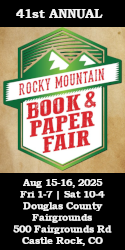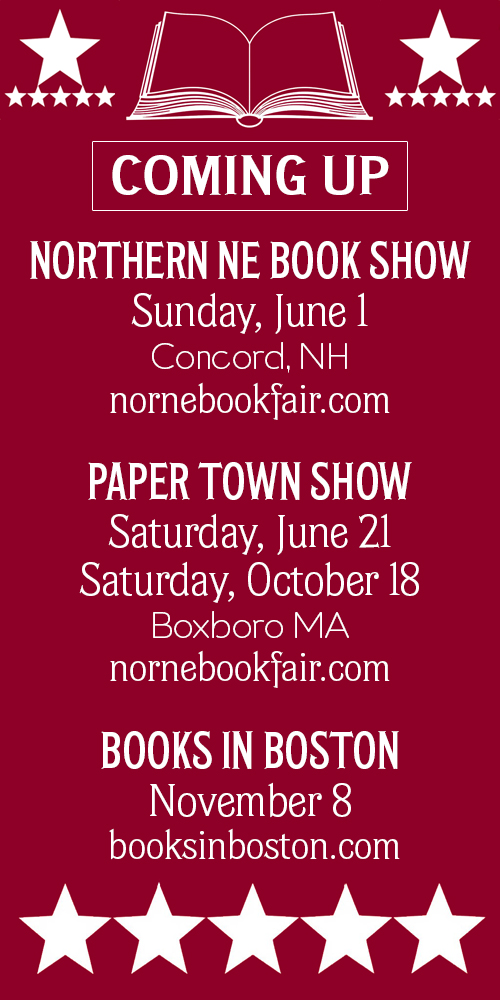Can’t Live with It, Can’t Live without It
Have you thought about buying one of the newer automated telephone systems? Technology has come quite a way from the mini-cassette recorders that were fairly cutting edge in the 1970s.
More and more businesses these days are spending good money to install equipment that has a considerable amount of negative advertising value built right in. With expanded features and options that erect more speed bumps and barriers along the telecommunications highway, do you suppose these systems are being marketed to businesses trying to attract customers who are unemployed, retired, or simply in need of something to do?
“Thank you for calling the customer service line of Acme Enterprises. Your call is valuable to us, but since our menu has recently changed, please listen carefully to the following options before making your selection”. (If you haven’t hung up by now and continue to play this game—and actually enjoy it—you’d probably smile through a water-boarding session and ask for more).
“For English, press one, for Spanish, press two…for Urdu press four, for Tagalog press five…” (If your company has outsourced its accounting department and you’re looking for a job, we may have an opening for you in our Manila call center).
“You’ve reached Mary at extension 15—I’m not at my desk right now, but if your call requires our immediate attention, please press 11 and Ellen will be happy to assist you.” (She’ll be away from her desk on a coffee break, but a recorded message will suggest additional options. P.S. My name is really Mary Ellen)
“Ok, let’s get started—to begin, just press or say ‘one’…” (Almost had you—I bet you thought you were talking to a real person, right? But for heaven’s sake please don’t keep pressing zero or you might accidentally reach one of us and the salesman who sold us this turkey promised that would never happen)
How much should small businesses be willing to invest to bring their telephone equipment into the twenty-first century? That’s what the salesman from Acme Telecommunications Solutions asked us after his PowerPoint presentation. $1.49 I suggested? On second thought—wouldn’t that be a terribly high price to pay just to antagonize existing customers and discourage new ones?
***
To rid you of the notion that we’re against newer technology (it’s just poorly applied technology that we find annoying), let’s just say that without it this magazine couldn’t exist. Publishing software, electronically transmitted text and picture files in digital format—all of it was in its infancy when we began in the mid ’80s, but now that we’re thoroughly spoiled, the very thought of going back to the days of pasting up photo-galleys by hand until three in the morning is rather chilling. Also, newer image setting technology has made it possible to print in four-color process with faster turnaround time and at less cost than ten years ago.
Still, the battle never ends. Postage rates are going up again in May and this time we’ll have to absorb the cost and not pass it on. Newspapers around the country continue to lose circulation and some media groups are trying to spin off or dump the newspaper side of the business in order to concentrate on their more profitable online editions. The same thing is happening to some magazines. The Nation, a non-glossy American magazine icon, has been around since 1865 but gradually more of its content and many of the archived articles have been shifted to the web (www.thenation.com). I believe they, and other publications, are positioning themselves so that if they ever do abandon paper format (and I pray that never happens), their websites will remain a valuable resource—available worldwide but without the tremendous printing and postage expense. (A notable exception might be the glossy tabloid magazines, found at most supermarket checkout counters, whose pages are filled with pictures of people who are famous because their pictures fill the pages of the glossy tabloid magazines found at most supermarket checkout counters). These publications are and will remain successful because they give the American public more of what it wants and in a format it is willing to pay for.
Years ago a newspaper or magazine website would serve as an online brochure for the publication itself (much as a pizzeria, auto repair shop, or insurance agency might have a website to advertise its business). Nowadays in the periodical publishing field, the tail not only wags the dog, it’s become the dog—and, I believe, more print publications will eventually be offered in slimmed down versions—mainly as brochures to advertise the much larger body of content available, by subscription, on newspaper or magazine websites.
As it happens, we’re in the middle of redesigning our own website. In the past six or seven years the cost of server space has remained fairly constant, but since we’re now given nearly eight times as much storage capacity, without an increase in the annual charge, in real terms our web hosting costs have actually declined. With printing and postage rates constantly on the rise it’s not difficult to see where periodical publishing is headed.
At present nearly 35% of our content is available free to anyone, without registration, at www.booksourcemagazine.com. The revised edition will have a new look with logo/links not only to prominent auction houses, book search sites, booksellers, suppliers of book repair and archival materials, but also to important news and information sources. Plans are also in the works for eventually putting all of our content plus archived articles on the site, with full access available for an annual subscription fee. At this point serendipity and circumstance will chart the new course, and the exciting part is that we have no idea where it will all lead.
***
Kevin Graffagnino’s latest compilation of “quotations for bibliophiles,” All the Good Books… (2006), has just been published by Vermont Heritage Press—his first, Only in Books: Writers, Readers & Bibliophiles on Their Passion, was published by Madison House in 1996.
Either book would be a good vade mecum for your next road trip or would be a useful reference for an after dinner talk before a group of like-minded people. It would be impossible to compile a book like this and leave out the turgid, tedious and obvious—and there’s plenty that would make Elbert Hubbard proud. Well you could, but then it wouldn’t be comprehensive, would it? What we may think rather pedestrian might have been considered a bit clever and cutting-edge at the time. For example:
“An investment in good books is one which pays interest for life. With proper planning any individual, regardless of financial status, can acquire an extensive diversified library of the world’s best literature. Within a few short years, for the expenditure of a trifle more than $1.00 per week, or at a total cost considerably less than a cheap, second-hand automobile, one can come into possession of a collection of books which will open the gateway to a fuller and richer life”– C. Waller Barrett.
Right. Now with that done, let’s get to the really fun stuff:
“I took a speed reading course and read War and Peace in twenty minutes. It’s about Russia” – Woody Allen.
*
“Critics are like eunuchs in a harem. They’re there every night, they see it done every night, they see how it should be done every night, but they can’t do it themselves” – Brendan Behan.
*
“The covers of this book are too far apart” – Ambrose Bierce.
*
“When writers die they become books, which is, after all, not too bad an incarnation”
(and)
“There are people who barely feel poetry… and they are generally dedicated to teaching it” – Jorge Luis Borges.
*
“You can never be too thin, too rich, or have too many books” – Carter Burden.
*
“I must say I find television very educational. The minute somebody turns it on, I go to the library and read a good book”– Groucho Marx.
*
“I would be most content if my children grew up to be the kind of people who think decorating consists mostly of building enough bookshelves”– Anna Quindlen
*
Mark Twain had it in for everyone, especially editors and publishers, but he might have had a change of heart when he finally became one. From the thirty quotations in All the Good Books, we selected three:
“How often we recall, with regret, that Napoleon once shot at a magazine editor and missed him and killed a publisher. But we remember, with charity, that his intentions were good”
(and)
“Be careful about reading health books. You may die of a misprint”
(and)
“I was sorry to have my name mentioned as one of the great authors, because they have a sad habit of dying off. Chaucer is dead, Spenser is dead, so is Milton, so is Shakespeare, and I’m not feeling very well myself”
Some historians of the19th century (as opposed to 19th century historians) have commented that the Victorians had a love affair with death, but it takes a Mark Twain to make it all seem funny.
Although the book carries a 2006 imprint, it didn’t become available until last month—mainly because it lingered for a while at a New Hampshire bookbindery. But with a sewn binding encased in real cloth-covered boards, it was worth the wait. If you don’t find it at your favorite bookstore, Kevin Graffagnino, who is also Executive Director of the Vermont Historical Society in Montpelier, would be delighted to let you know where you can buy a copy.


























